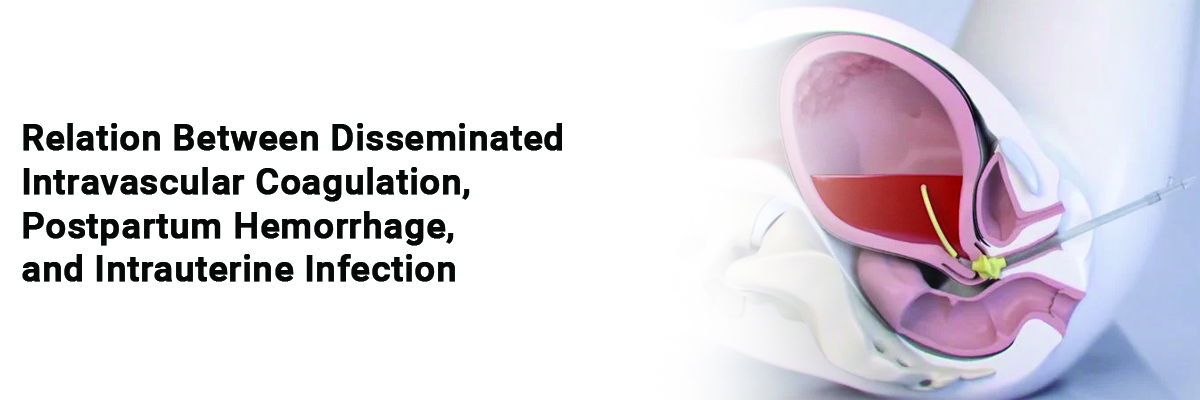
 IJCP Editorial Team
IJCP Editorial Team
Relation between disseminated intravascular coagulation, postpartum hemorrhage, and intrauterine infection
Intrauterine infection during pregnancy triples the risk of postpartum hemorrhage and severe PPH and increases the likelihood of maternal blood transfusion by two to three times compared to women without infection.
Haury J et al. recently evaluated the risk of disseminated intravascular coagulation (DIC) in postpartum hemorrhage (PPH) associated with intrauterine infection. Of 2,093 patients with PPH, they compared 49 exposed to a clinical intrauterine infection to 49 unexposed patients. They found that the rate of DIC was higher in patients with than without infection, and coagulation anomalies occurred sooner in patients with than without infection. They also found intrauterine infection as the only factor independently associated with DIC. Furthermore, 14% of this association between intrauterine infection and DIC was mediated by severe PPH, and 86% resulted from the direct effect of intrauterine infection on DIC.
This research proves that in PPH, intrauterine infection has a major direct effect on the occurrence, timing, and severity of DIC.
Haury J, Seco A, Goffinet F, Lepercq J. Risk of disseminated intravascular coagulation in postpartum hemorrhage associated with intrauterine infection. Journal of Gynecology Obstetrics and Human Reproduction. 2023;52(8). https://doi.org/10.1016/j.jogoh.2023.102626

IJCP Editorial Team
Comprising seasoned professionals and experts from the medical field, the IJCP editorial team is dedicated to delivering timely and accurate content and thriving to provide attention-grabbing information for the readers. What sets them apart are their diverse expertise, spanning academia, research, and clinical practice, and their dedication to upholding the highest standards of quality and integrity. With a wealth of experience and a commitment to excellence, the IJCP editorial team strives to provide valuable perspectives, the latest trends, and in-depth analyses across various medical domains, all in a way that keeps you interested and engaged.






















Please login to comment on this article